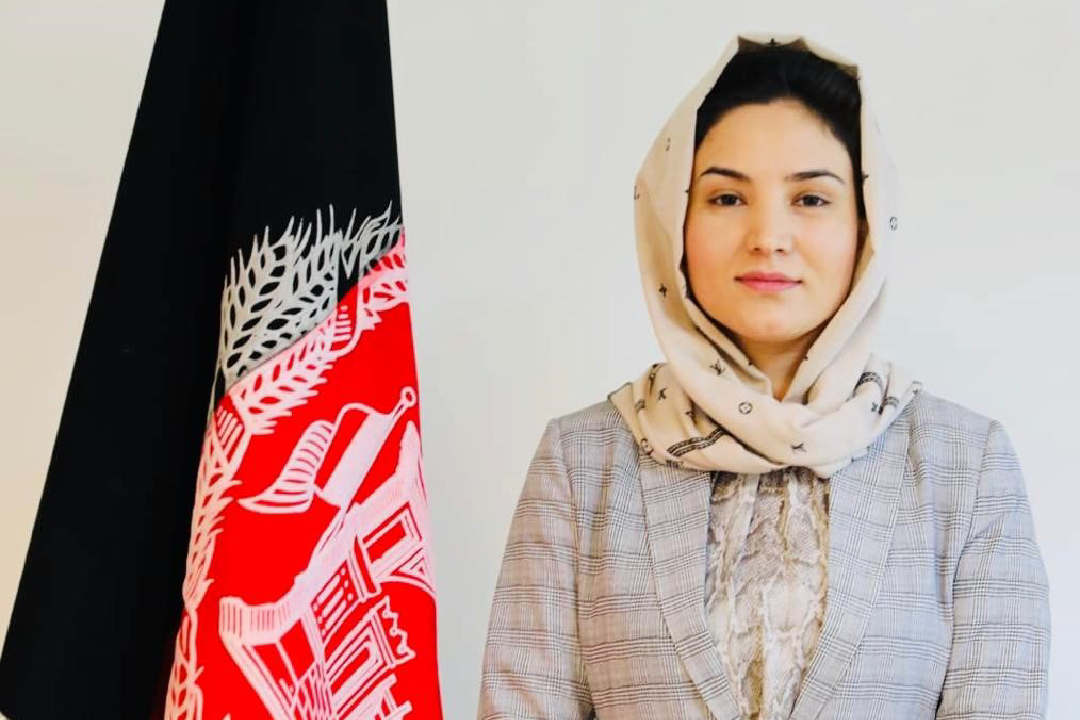A force to be reckoned with

How would you describe the role of the Afghan National Police (ANP) – now and in a post-settlement scenario?
After 40 years of war, building a lasting peace will be the task of a generation. Police forces have a crucial role in sustaining and expanding political peace to the social level. We also anticipate higher demand for law enforcement once a political settlement clarifies the lines between terrorism and crime, and criminals can no longer hide behind an armed political opposition.
Because of the ongoing war, there is a massive imbalance in international support for the army and the police, in favour of the former. We currently receive 20-25 percent of security-sector assistance, sometimes even less. This covers operational costs but gives little room for new investments. To increase the effectiveness, self-reliance, and sustainability of our forces, this needs to change. We need to invest now to give officers the appropriate (re-)training to become the backbone of Afghanistan’s domestic security policy.
The ANP needs reform and transformation – how do you plan to achieve this, and how does it affect your leadership style?
We want to transform the police’s mandate from the battlefield to guardianship and to keeping communities safe. Until now, 84 percent of our forces are focussed on military tasks instead of providing public safety, services, and law enforcement. But in the future, policing should be community-oriented. As the responsibilities of the police increase and change, we will need enhanced recruitment and retraining.
Our reforms aim at improving infrastructure, bureaucratic effectiveness, capacity building, and, subsequently, transferring responsibilities from the international community to ourselves. Of course, strategic communication, both with our forces and the public, is essential. To understand local security needs, I travel to the provinces and talk to political leaders, commanders, elders, mullahs, and civil society. I regularly visit checkpoints to put myself in the shoes of our forces, find out which issues could affect their morale if left unaddressed by us. To me, police development and creating ownership is a very tactical bottom-up process.
Do you expect quick results from the much anticipated negotiations with the Taliban?
The high level of violence since the February 29-Agreement between the United States and the Taliban is not encouraging to be honest. It is hard to imagine the Taliban entering meaningful negotiations with the government soon. If the talks start, it will be a very long and complicated process. The conflict parties’ views on core issues are fundamentally different, and it will take much work to come up with solutions. At the same time, the Taliban themselves do not seem to have a consensus on which compromises could be acceptable to them on the leadership and local levels. Should a settlement take place, the Taliban’s lack of experience in governance as we understand it and conflicting ideas of the government’s role vis-à-vis the citizens could lead to new tensions.
The security sector continues to be heavily male-dominated- why does that need to change?
The lack of women affects the overall performance and effectiveness of the police force. It continues to serve only Afghan men if, for instance, there are no female officers around to enter a woman-led household legally. Levels of violence against women and children are high in Afghanistan, and they are also the primary victims of war. Even limited access to female police officers can make a difference here, and we hope to expand this to all provinces. If we want to bring peace to our society, women’s roles should expand from being victims of violence and war to include law enforcers.
For the sake of our development, we need to diversify our workforce, which is only possible through investment in women’s capabilities. Hence, we should no longer make recruitment about numbers, and focus on skills and a better work environment. For centuries, everything has been built by men for men: policies, processes, even the structure of buildings, as there has never been a presence of women. Now that this has changed, I tell my female colleagues to raise their voices, communicate their needs, and demand that structures are re-designed to serve everyone. But we also have to consider that in addition to the professional workload, where they often face scrutiny and prejudices, women carry most of the social responsibilities, and the lives of men and women outside the workplace are hardly equal.
How do you manage expectations about women’s empowerment based on your own gender?
I make policies for both men and women. I refuse to be treated as the unofficial head of the Gender Department, just because I am a woman. As gender issues affect both male and female employees, we are sensitive to them on all levels of our planning and decision-making processes. Everyone, from the minister to every police officer, must work for women, and men must become allies of women to create an integrated workforce and overcome the gender segregation that keeps us from reaching our full potential.
If more women are to follow in your footsteps, what needs to change?
I wish more families would understand that we need their daughters, wives, mothers to contribute professionally to Afghanistan’s development, and that access to education does not threaten dignity. Women who leave their homes to study and work have a thick skin and deserve our respect. I encourage men to compete with women professionally, not by using traditional roles against them. When it comes to working effectiveness or ethical issues, there should be no double standards.
Similarly, I encourage women to interpret any condescension from a man as a sign he is feeling out of his professional league and weak. I know it is difficult, but when we enter the workplace, we should take our “gender hats” off. When women become role models for their male colleagues, changes can be sustainable.
Many positions in the security sector are being taken up by women for the first time these days, including my own; we should not be the last ones as well. We need to encourage others to follow in our footsteps, and fight for them to have a more pleasant start than we did. I decided to raise my voice and fight back if people are disrespecting me in personal attacks, and that has changed how people are voicing support and criticism for my political work now. An atmosphere of greater fairness and respect, especially for female public servants, is needed.
About the interviewee
Hosna Jalil, born in 1992 in Kabul, is the Deputy Minister of Interior (MoI) for Policy and Strategy of the Islamic Republic of Afghanistan. She received her master’s degree in business administration at the American University of Afghanistan (AUAF) and has worked in policy planning at the Mines and Petroleum Ministry before being appointed to her current post in 2018.Twitter: @hosnajalil
About FES Connect
Connecting people, in the spirit of social democracy, we source and share content in English from the German and international network of the Friedrich-Ebert-Stiftung.



